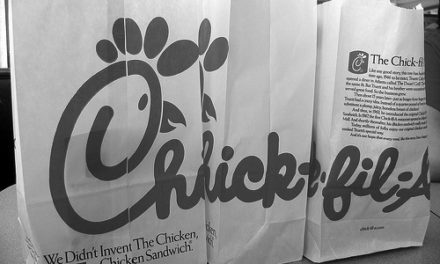While Emory may be making strides in sustainability, one of its largest benefactors is trending in the opposite direction. After a collective effort around the world led by nonprofit Break Free From Plastic to clean up plastic waste, Coca-Cola was named the biggest polluting brand in 2018. The resulting audit found that the company accounted for more plastic waste last year than those of the next three most prolific polluters combined.
Emory’s association with Coca-Cola gives the University a unique opportunity to weigh in on this issue. University administrators and students must confront Coca-Cola’s contribution to pollution by creating research opportunities in sustainability for students and faculty. This research could range from alternative bottling methods to sustainable disposal techniques or anything else that would help Coca-Cola products end up in recycling bins and not in oceans or streets.
Coca-Cola has certainly taken limited steps to become more environmentally conscious. In fact, the company pioneered the latest sustainability breakthrough in bottle production — the PlantBottle. In contrast to most PET (polyethylene terephthalate) plastic bottles, the PlantBottle is composed of 30 percent plant material and has a lighter carbon footprint. However, even if the bottle itself is constructed to decrease its impact on the environment, the physical makeup of the bottle yields little to no environmental change without proper disposal. And if their projected increase in sales holds true, the company will ultimately end up with a higher net plastic footprint. Coca-Cola could significantly lighten its environmental footprint by reducing production of plastic packaging but currently has no plans to do so.
With Emory alumnus and former Coca-Cola President Robert W. Woodruff being one of Emory’s most prominent donors to date, Coca-Cola should remember well Woodruff’s dedication to community involvement . It is disappointing that Emory’s commitment to sustainability is not matched by the company that developed it into a world-class university.
The results of this audit should reveal to Coca-Cola executives the need to quickly find a sustainable solution. As a leading research university with close ties to the company, Emory could reinvigorate Woodruff’s vision for his company. By researching more sustainable bottling options, Emory students and faculty would join one of the world’s largest companies at the forefront of environmental innovation. Coca-Cola has sustainable packaging and recycling initiatives across the globe, but as the audit suggests, it must go further. To ensure that more of its bottles are recycled, Emory and Coca-Cola should fund research into recycling strategies specific to different cities and countries. Depending on the area, different recycling methods will produce better results than others. Even within each state there is variance in the type of recycling infrastructure implemented.
Emory should also introduce more Coca-Cola Freestyle machines and Coca-Cola soda fountains on campus to reduce the sale of plastic bottles in places like Cox Hall and the Eagle Emporium. While both Coca-Cola and Emory should aim to be a plastic-free company and campus, respectively, these joint efforts are necessary first steps toward realizing that goal.
Finally, the University can follow Vanderbilt University’s (Tenn.) lead by eliminating single-use bottles throughout dining halls, markets and vending machines on campus. Other peer institutions, including Duke University (N.C.) and New York University, have also made plans to significantly shrink plastic bottle offerings. Emory would be wise to follow their lead.
Coca-Cola’s next steps to confront improper disposal of their plastic bottles will determine whether or not they continue to carry out the spirit of change Woodruff first sparked in 1979. This is an opportunity to effect real change in our local community instead of just the corner office at Coca-Cola headquarters. Emory should seize the opportunity to cement its status as a sustainable school by engaging its community to bolster Coca-Cola’s efforts to fight pollution.
The Editorial Board is composed of Zach Ball, Devin Bog, Jake Busch, Meredith McKelvey, Andrew Kliewer, Boris Niyonzima, Nick Pernas, Kimia Tabatabaei and Grace Yang.
The Editorial Board is the official voice of the Emory Wheel and is editorially separate from the Wheel's board of editors.




